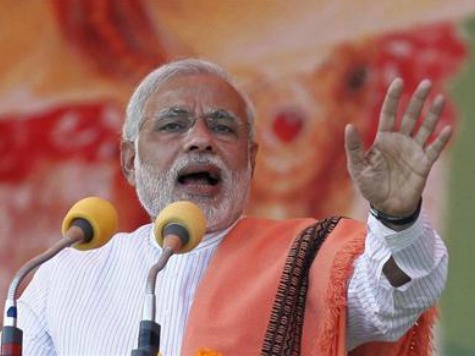
The recent landslide election of India’s new Prime Minister Narendra Modi has not only raised the expectations of Indians anxious to ignite an economic boom on the subcontinent, but also the hopes of anxious neighbors looking to Deli to provide them with a reliable strategic partner to strengthen the regional balance of power against a rapidly rising China.
The challenges facing Mr. Modi are almost as immense as the opportunities awaiting his gigantic and expectant country. His BJP party won a massive election victory, in large part, due to the pent-up frustrations of so many Indians impatient for a central government powerful and confident enough to finally start addressing India’s long neglected weaknesses.
As C.J. Mohan points out in the American Interest, “Even small steps that restore a sense of political purposefulness could significantly improve in his image and generate much space for the new government to operate on the international stage.”
India’s new government may have taken precisely such a small, but consequential, step last week when it finally got parliament to ratify a long-delayed international nuclear treaty that the previous government was too weak to get passed.
It has been almost six years since India and United States signed a joint nuclear cooperation agreement that bound together the two countries’ civilian nuclear energy programs. The passage of the long-delayed protocol allows the International Atomic Energy Agency to finally send inspectors to India’s civilian nuclear sites–the necessary prelude to allowing the India-U.S. nuclear power agreement to begin bearing fruit.
India’s energy needs are enormous. Indians must have a massively expanded availability of reliable, affordable, and abundant electric power if they are ever to experience the broad economic expansions they are counting on.
The U.S.-India nuclear cooperation agreement was designed to meet India’s growing electric power needs by ending its reliance on expensive fossil fuel imports from unstable and unreliable sources. India has plans to build at least 19 1000 MW state-of-the-art nuclear reactors, presumably to be built with much assistance from American nuclear energy companies.
Reports indicate India is in the final stages of negotiations with Australia to provide a dependable supply of uranium to fuel its reactors. Australia is only too interested in strengthening ties with its huge English-speaking and democratic neighbor.
Mr. Modi plans to tour global financial centers to solicit the capital his country will need to finance the massive expansion of its infrastructure. He kicks off his travels with a journey to regional ally Japan early next month, followed by a trip to Washington in September.

COMMENTS
Please let us know if you're having issues with commenting.